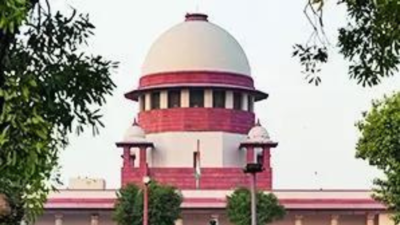NEW DELHI: Supreme Court Friday expressed reluctance to entertain a petition by Mathura’s Shahi Idgah mosque management committee challenging an Allahabad High Court order for clubbing together all 15 Hindu-side suits seeking right to worship on the disputed site claiming it to be Lord Krishna’s birthplace.
“Why should we interfere with the order for consolidation of all suits?” asked a bench comprising CJI Sanjiv Khanna and Justice Sanjay Kumar even before the committee’s counsel Tasneem Ahmadi could give reasons for moving Supreme Court against the August 1, 2024, order of a single judge bench of the HC.
Ahmadi said the suits were dissimilar and raised myriad issues & should not have been clubbed together. “We (SC) are examining other issues (implementation of Places of Worship Act, 1991). But consolidation is immaterial for those purposes,” court said.
“Do not try to complicate the already complicated issue. Every issue is not to be agitated, and every order is not to be challenged before SC. It is for the benefit of all that the suits are consolidated and tried together,” the CJI-led bench said.
Advocate for the Hindu side, Vishnu Shankar Jain, told the court that all the petitions have raised similar issues, at the core of which is return of the land over which a mosque was constructed by demolishing a temple dedicated to Lord Krishna, symbolising his birthplace.
Ahmadi contested the claim and said each suit needed to be weighed with historical events which corroborated existence of the mosque for 400 years. CJI said, “Consolidation makes no difference. I don’t understand why this is raised.”
However, the bench agreed to give another chance to the committee to think about the desirability of moving SC against the single judge’s order clubbing the suits. It posted further hearings in the first week of April.
Justice Mayank Kumar Jain of the HC had ordered on Aug 1, “On reading of the plaint as a whole and in a meaningful manner, perusal of the material on records, consideration of the arguments advanced by the rival parties, and settled legal propositions, I conclude that the plaints in all the suits of the plaintiffs disclose a cause of action and they do not appear to be barred by any of the provisions of the Wakf Act, Places of Worship Act, the Specific Relief Act and the Limitation Act and Civil Procedure Code.”




